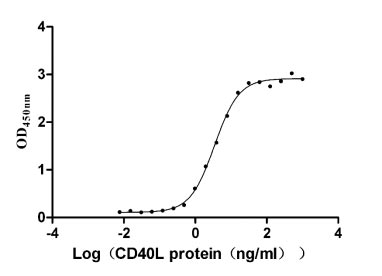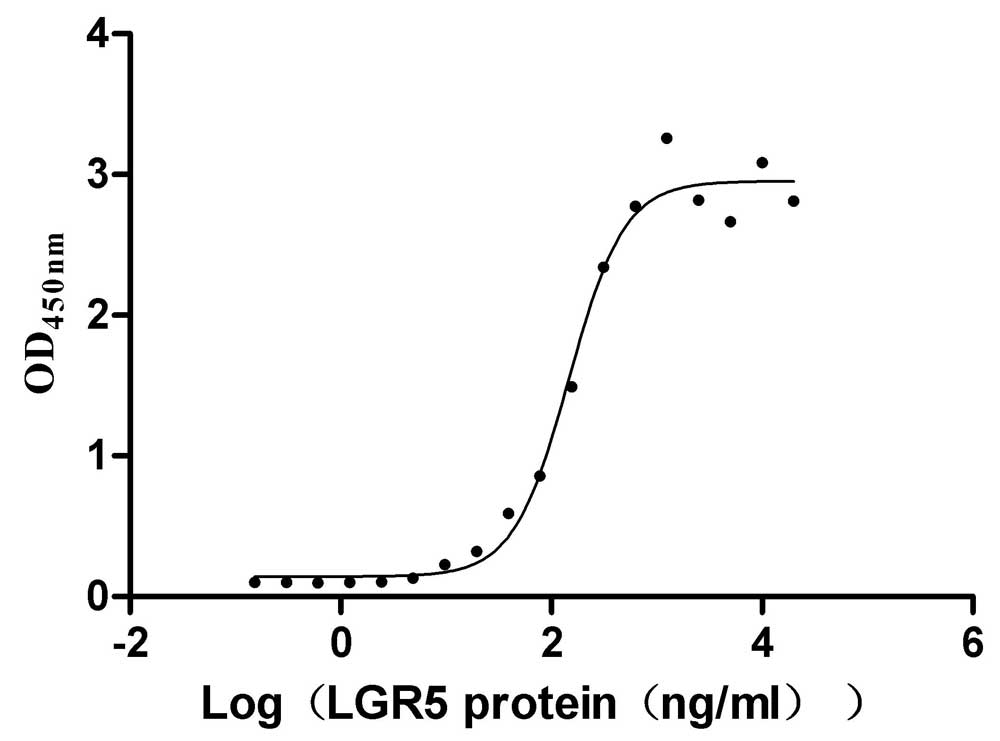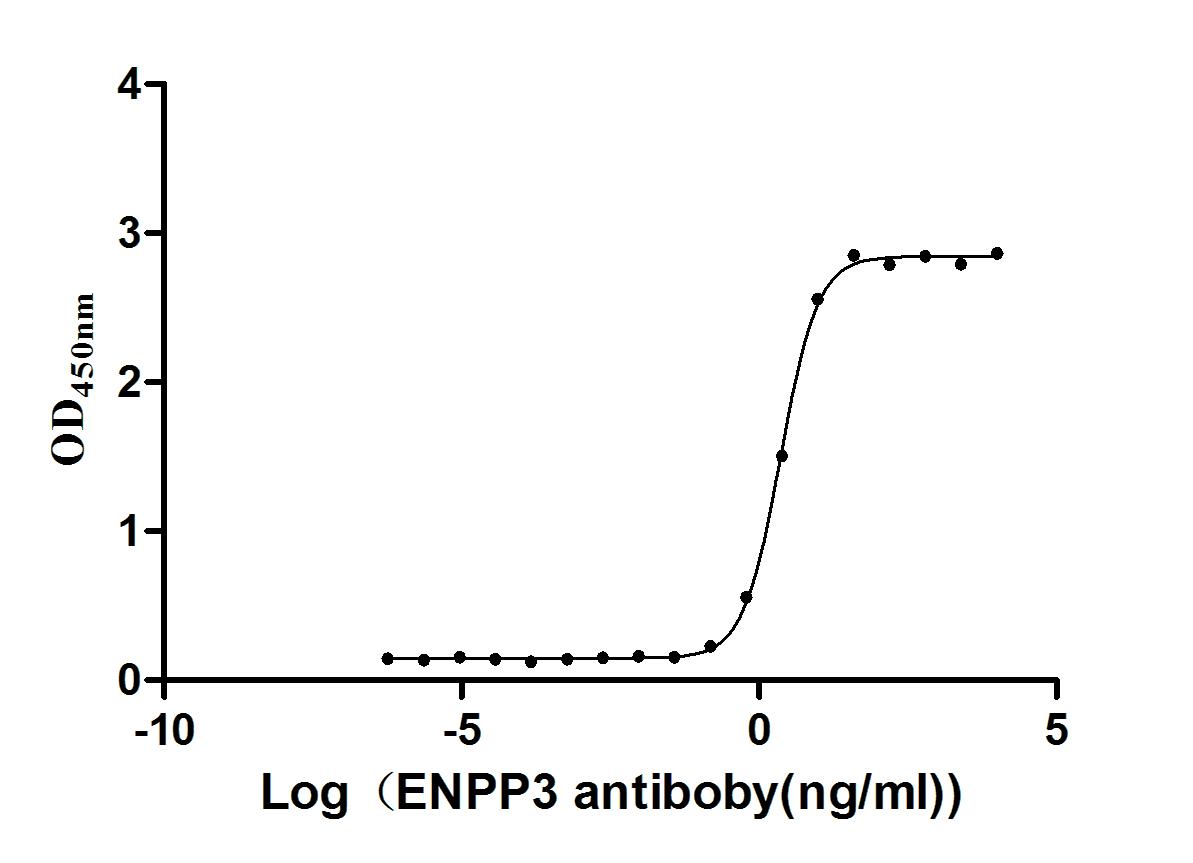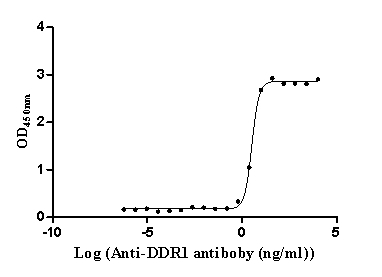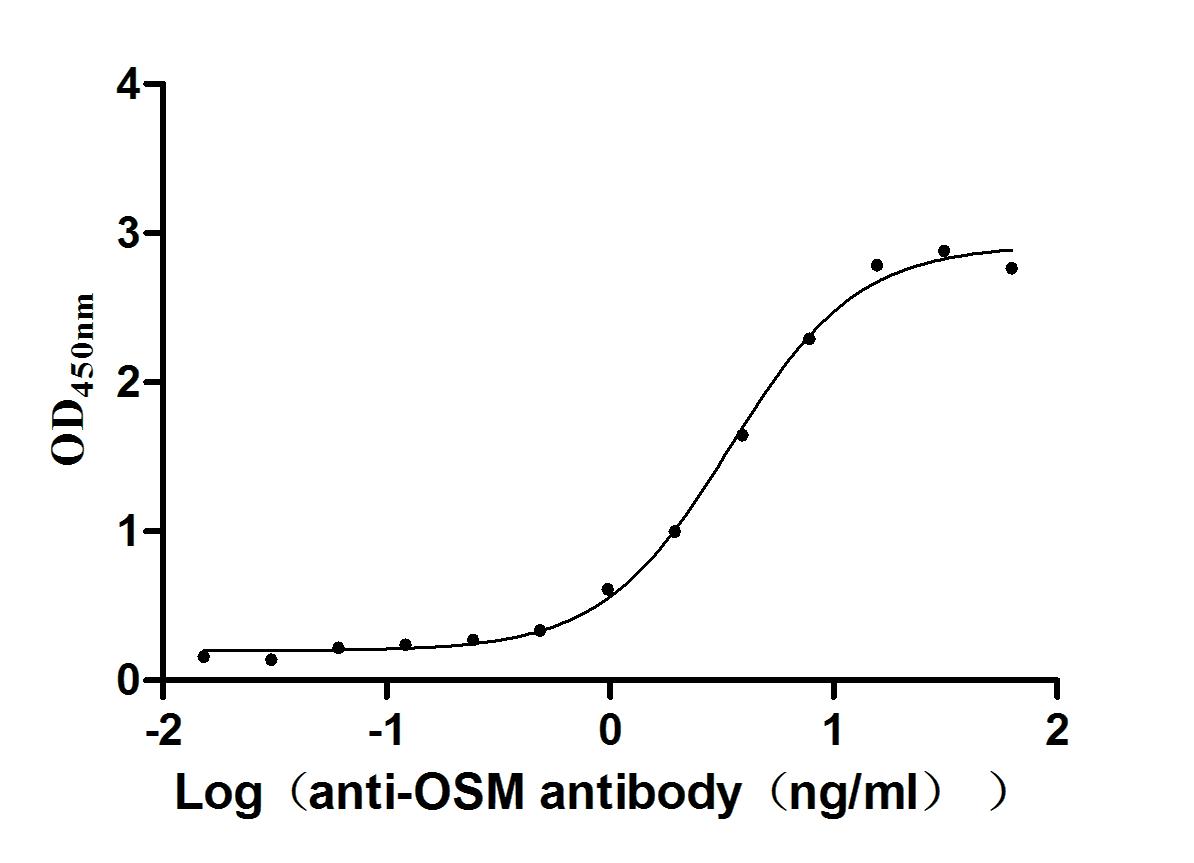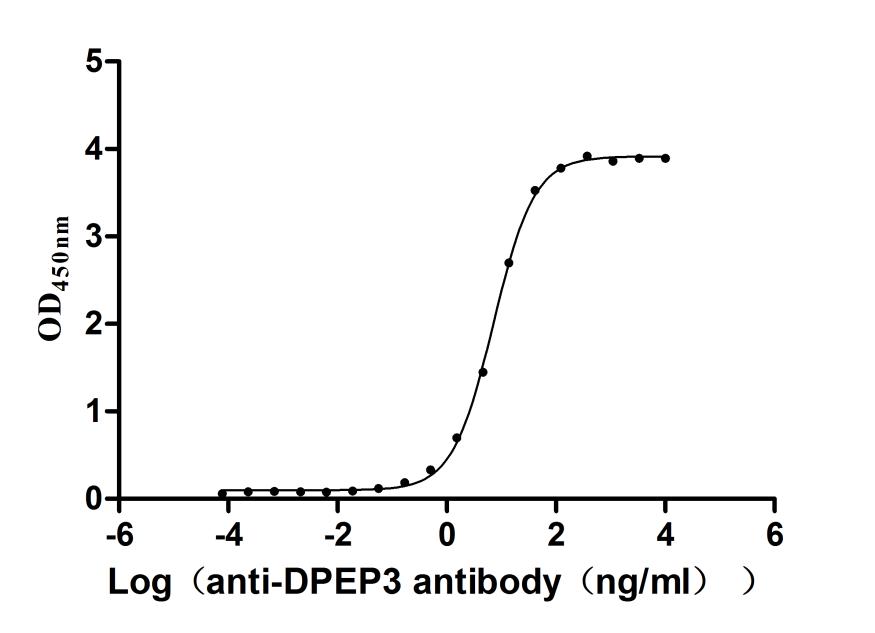Recombinant Human UPF0414 transmembrane protein C20orf30 (C20orf30)
-
中文名称:人TMEM230重组蛋白
-
货号:CSB-CF853380HU
-
规格:
-
来源:in vitro E.coli expression system
-
其他:
产品详情
-
基因名:TMEM230
-
Uniprot No.:
-
别名:TMEM230; C20orf30; HSPC274; UNQ2432/PRO4992; Transmembrane protein 230
-
种属:Homo sapiens (Human)
-
蛋白长度:full length protein
-
表达区域:1-120
-
氨基酸序列MMPSRTNLATGIPSSKVKYSRLSSTDDGYIDLQFKKTPPKIPYKAIALATVLFLIGAFLI IIGSLLLSGYISKGGADRAVPVLIIGILVFLPGFYHLRIAYYASKGYRGYSYDDIPDFDD
Note: The complete sequence including tag sequence, target protein sequence and linker sequence could be provided upon request. -
蛋白标签:N-terminal 10xHis-tagged
-
产品提供形式:Liquid or Lyophilized powder
Note: We will preferentially ship the format that we have in stock, however, if you have any special requirement for the format, please remark your requirement when placing the order, we will prepare according to your demand. -
缓冲液:Lyophilized from Tris/PBS-based buffer, 6% Trehalose, pH 8.0
-
储存条件:Store at -20°C/-80°C upon receipt, aliquoting is necessary for mutiple use. Avoid repeated freeze-thaw cycles.
-
保质期:The shelf life is related to many factors, storage state, buffer ingredients, storage temperature and the stability of the protein itself.
Generally, the shelf life of liquid form is 6 months at -20°C/-80°C. The shelf life of lyophilized form is 12 months at -20°C/-80°C. -
货期:Basically, we can dispatch the products out in 1-3 working days after receiving your orders. Delivery time may differ from different purchasing way or location, please kindly consult your local distributors for specific delivery time.Note: All of our proteins are default shipped with normal blue ice packs, if you request to ship with dry ice, please communicate with us in advance and extra fees will be charged.
-
注意事项:Repeated freezing and thawing is not recommended. Store working aliquots at 4°C for up to one week.
-
Datasheet & COA:Please contact us to get it.
相关产品
靶点详情
-
功能:Involved in trafficking and recycling of synaptic vesicles.
-
基因功能参考文献:
- Findings suggest that the incidence of pathogenic variations in TMEM230 is very low and, therefore, TMEM230 do not play a major role in familial and sporadic Parkinson's disease patients in southern Spanish population which can have important implication in clinical investigation. PMID: 29771939
- These results suggest that TMEM230 mutations are not a frequent cause of PD with AD inheritance in the Italian population. PMID: 28318986
- TMEM230 mutations are rare in Chinese patients with familial PD. PMID: 28038866
- This study suggest that mutations in TMEM230 are not a common cause of Parkinson's disease. PMID: 28090676
- the TMEM230 stop codon mutation is rare in Parkinson's disease and essential tremor patients from China, especially eastern China. PMID: 27869322
- Study did not detect any potential functional exonic TMEM230 variants in sporadic multiple system atrophy in a Han Chinese cohort. PMID: 28320143
- These results suggest that TMEM230 gene mutations may be rare in Chinese populations, and the variability of TMEM230 gene may not be a main factor for sporadic Parkinson's disease patients in Chinese Han populations. PMID: 28446760
- These findings identifying TMEM230 as a component of granulovacuolar degeneration and dystrophic neurites suggest TMEM230 dysregulation as a likely mechanism playing an important role in the pathogenesis of Alzheimer's Disease. PMID: 28527219
- The identification of TMEM230 mutations in Parkinson's disease is potentially an important finding. PMID: 28568905
- TMEM230 mutation might be a rare cause of Chinese familial and sporadic Parkinson's-disease patients. PMID: 28709721
- Mutation in TMEM230 gene is not associated with Parkinson's disease. PMID: 28766910
- TMEM230 mutation may not be a common genetic factor for Chinese familial and sporadic PD patients. PMID: 27814995
- No variants in the TMEM230 region were found associated with PD, age at onset, or cerebrospinal fluid alpha-synuclein levels PMID: 28457580
- Mutations in TMEM230 is associated to Parkinson's disease (PD). PMID: 27818000
- TMEM230 mutation is associated with Parkinson's disease. PMID: 27270108
- knockdown of another Parkinson's disease (PD) gene, LRRK2, which phosphorylates Rab8a, similarly impairs retromer trafficking, secretory autophagy and Golgi-derived vesicle secretion, thus demonstrating converging roles of two PD genes TMEM230 and LRRK2 on Rab8a function, and suggesting that retromer and secretory dysfunction play an important role in PD pathogenesis. PMID: 28115417
显示更多
收起更多
-
相关疾病:Parkinson disease (PARK)
-
亚细胞定位:Membrane; Multi-pass membrane protein. Golgi apparatus, trans-Golgi network. Cytoplasmic vesicle, secretory vesicle, synaptic vesicle. Early endosome. Recycling endosome. Late endosome. Cytoplasmic vesicle, autophagosome.
-
蛋白家族:TMEM134/TMEM230 family
-
数据库链接:
HGNC: 15876
OMIM: 168600
KEGG: hsa:29058
STRING: 9606.ENSP00000341364
UniGene: Hs.472024
Most popular with customers
-
Recombinant Human Tumor necrosis factor receptor superfamily member 5 (CD40), partial (Active)
Express system: Mammalian cell
Species: Homo sapiens (Human)
-
Recombinant Human R-spondin-1 (RSPO1), partial (Active)
Express system: Mammalian cell
Species: Homo sapiens (Human)
-
Express system: Mammalian cell
Species: Homo sapiens (Human)
-
Recombinant Human Epithelial discoidin domain-containing receptor 1 (DDR1), partial (Active)
Express system: Mammalian cell
Species: Homo sapiens (Human)
-
Recombinant Human Oncostatin-M (OSM), partial (Active)
Express system: Mammalian cell
Species: Homo sapiens (Human)
-
Recombinant Human Dipeptidase 3(DPEP3), partial (Active)
Express system: Mammalian cell
Species: Homo sapiens (Human)


